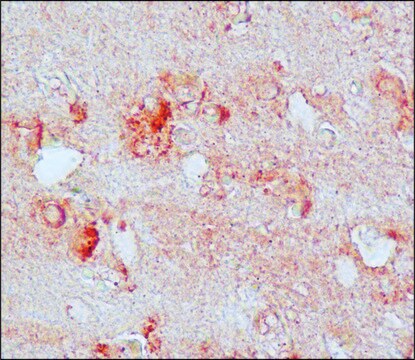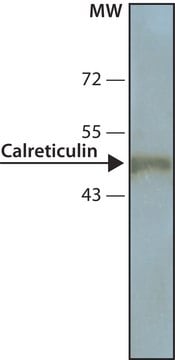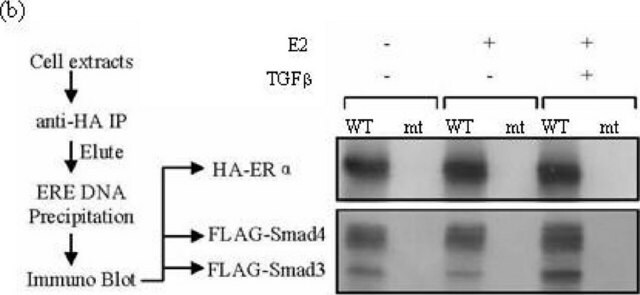SAB5200009
Monoclonal Anti-Nitrotyrosine antibody produced in mouse
clone 39B6, 1 mg/mL, purified immunoglobulin
Sinónimos:
Anti-N/A, Anti-Nitrotyrosine
About This Item
Productos recomendados
biological source
mouse
conjugate
unconjugated
antibody form
purified immunoglobulin
antibody product type
primary antibodies
clone
39B6, monoclonal
form
buffered aqueous glycerol solution
species reactivity
mouse, dog, rat, human
concentration
1 mg/mL
technique(s)
immunohistochemistry: suitable
immunoprecipitation (IP): suitable
indirect ELISA: suitable
western blot: suitable
isotype
IgG2a
shipped in
wet ice
storage temp.
−20°C
target post-translational modification
nitration (Tyr)
Gene Information
human ... NOS1(4842)
Specificity
Immunogen
Features and Benefits
Physical form
Disclaimer
¿No encuentra el producto adecuado?
Pruebe nuestro Herramienta de selección de productos.
Storage Class
10 - Combustible liquids
wgk_germany
WGK 1
flash_point_f
Not applicable
flash_point_c
Not applicable
Certificados de análisis (COA)
Busque Certificados de análisis (COA) introduciendo el número de lote del producto. Los números de lote se encuentran en la etiqueta del producto después de las palabras «Lot» o «Batch»
¿Ya tiene este producto?
Encuentre la documentación para los productos que ha comprado recientemente en la Biblioteca de documentos.
Nuestro equipo de científicos tiene experiencia en todas las áreas de investigación: Ciencias de la vida, Ciencia de los materiales, Síntesis química, Cromatografía, Analítica y muchas otras.
Póngase en contacto con el Servicio técnico








